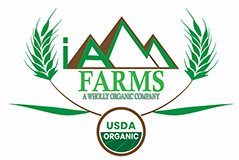Organic Farming
Organic farming has seen a significant rise in popularity over the past decade, and Alabama has become a noteworthy state in the movement. Furthermore, this agricultural method focuses on producing food using natural substances and processes, promoting ecological balance and conserving biodiversity. In this article, we delve into the organic farming practices employed in Alabama, highlighting this sustainable approach’s unique techniques and benefits.
The Rise of Organic Farming in Alabama
Historical Context
The roots of organic farming in Alabama can be traced back to traditional agricultural practices before the advent of chemical fertilizers and pesticides. Moreover, farmers relied on crop rotations, compost, and natural pest control methods to maintain soil fertility and health. To end, this historical foundation has influenced modern organic practices, integrating time-tested techniques with contemporary advancements.
Current Trends
In recent years, the demand for organic produce has driven farmers to adopt more sustainable methods, resulting in a marked increase in certified organic farms. According to the USDA, the number of certified organic farms in Alabama has grown by over 20% in the last five years. Next, this growth reflects a broader shift toward environmentally conscious farming practices prioritizing soil health, biodiversity, and consumer health.
Core Principles of Organic Farming
Soil Health and Fertility
Maintaining soil health is paramount in organic farming. Also, Alabama’s organic farmers employ several methods to enhance soil fertility and structure:
- Composting: Organic farmers create compost from plant residues and animal manure. Most important, this rich organic matter improves soil structure, water retention, and nutrient availability.
- Cover Cropping: Planting cover crops such as clover and rye during off-seasons prevents soil erosion, improves soil organic matter, and suppresses weeds.
- Crop Rotation: Rotating crops prevents soil depletion and disrupts pest and disease cycles, promoting a healthier and more resilient farming system.
Pest and Weed Management
Organic farming eschews synthetic pesticides and herbicides, opting instead for natural pest and weed control methods:
- Biological Control: Introducing natural predators like ladybugs and parasitic wasps helps control pest populations.
- Mechanical Weeding: Farmers use tools and machinery to remove weeds physically, minimizing the need for chemical interventions.
- Companion Planting: Growing certain plants together can deter pests and enhance growth. For example, planting marigolds alongside tomatoes can repel nematodes.
Animal Welfare
Animal welfare is a core principle for those involved in organic livestock farming. As a results, livestock are raised in conditions that allow for natural behaviors and provide outdoor access. Similarly, organic standards ensure that animals receive organic feed and are not treated with antibiotics or growth hormones.
Environmental and Economic Benefits
Ecological Impact
Organic farming practices contribute to a healthier environment in numerous ways:
- Biodiversity: Organic farms often have higher biodiversity, providing habitats for various wildlife species. This ecological diversity supports a balanced ecosystem.
- Water Conservation: Techniques such as mulching and drip irrigation improve water efficiency, reducing the overall water footprint of farming operations.
- Reduced Pollution: Organic farming reduces soil and water contamination by eliminating synthetic chemicals, promoting cleaner natural resources.
Economic Viability
Organic farming can be economically beneficial for Alabama’s farmers:
- Premium Prices: First, organic produce typically commands higher prices in the market, offering farmers better returns on their investment.
- Market Demand: Second, as consumer awareness and demand for organic products grow, farmers have access to a lucrative and expanding market.
- Cost Savings: Third, While the initial transition to organic farming may involve costs, long-term savings on synthetic inputs and improved soil health can reduce expenses.
Challenges and Solutions in Organic Farming
Certification Process
Achieving organic certification is a rigorous process that involves adhering to strict standards set by the USDA. Similarly, this process can be daunting for new farmers, but several organizations in Alabama offer support and resources to ease the transition.
Pest and Disease Management
Managing pests and diseases without synthetic chemicals requires knowledge and vigilance. In addition, farmers often participate in workshops and training sessions to learn effective organic pest management strategies.
Market Access
Finding reliable markets for organic produce can be challenging. Farmers’ markets, CSA (Community Supported Agriculture) programs, and direct-to-consumer sales are effective avenues for reaching customers.
Success Stories from Alabama’s Organic Farms
Iamfarms
One of Alabama’s notable organic farms, Iamfarms, has gained recognition for its innovative practices and commitment to sustainability. Located in the fertile region of northern Alabama, Iamfarms utilizes advanced organic methods to produce high-quality vegetables, fruits, and herbs. Next, the farm’s success is a testament to the state’s viability and benefits of organic farming.
Nature’s Bounty Organic Farm
Another exemplary farm, Nature’s Bounty Organic Farm, has successfully integrated organic livestock and crop production. Further, Nature’s Bounty exemplifies a sustainable farming model to maintain a closed-loop system where animal manure enriches the soil and crop residues feed the animals.
Future of Organic Farming in Alabama
The future of organic farming in Alabama looks promising. Equally, with increasing consumer demand and ongoing research into sustainable practices, organic agriculture is poised to play a crucial role in the state’s agricultural landscape. In the same way, support from local government initiatives and agricultural extension services will be vital in helping more farmers transition to organic methods.
Finally, organic farming practices in Alabama offer numerous benefits, from improved soil health and biodiversity to economic viability and environmental sustainability. Also, as more farmers embrace these methods, Alabama stands to become a leader in the organic farming movement, providing consumers with healthy, sustainably-produced food and contributing to a more resilient agricultural system.

